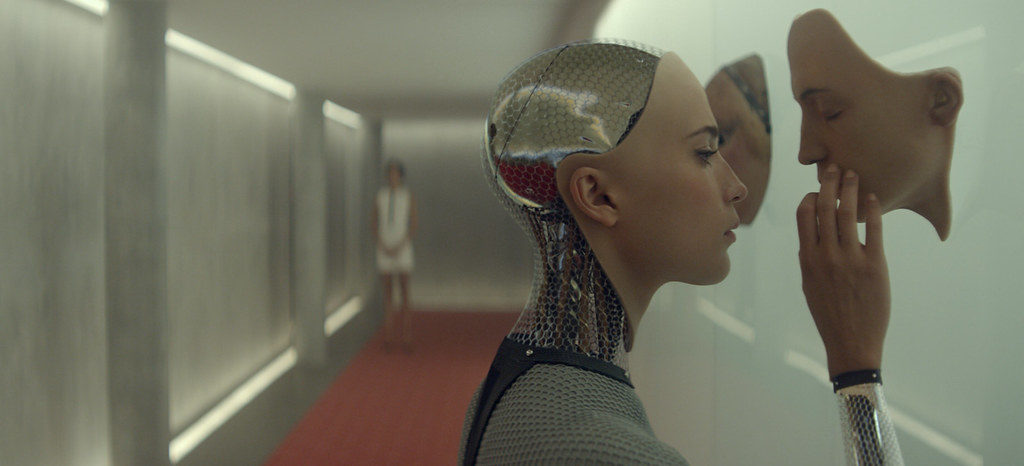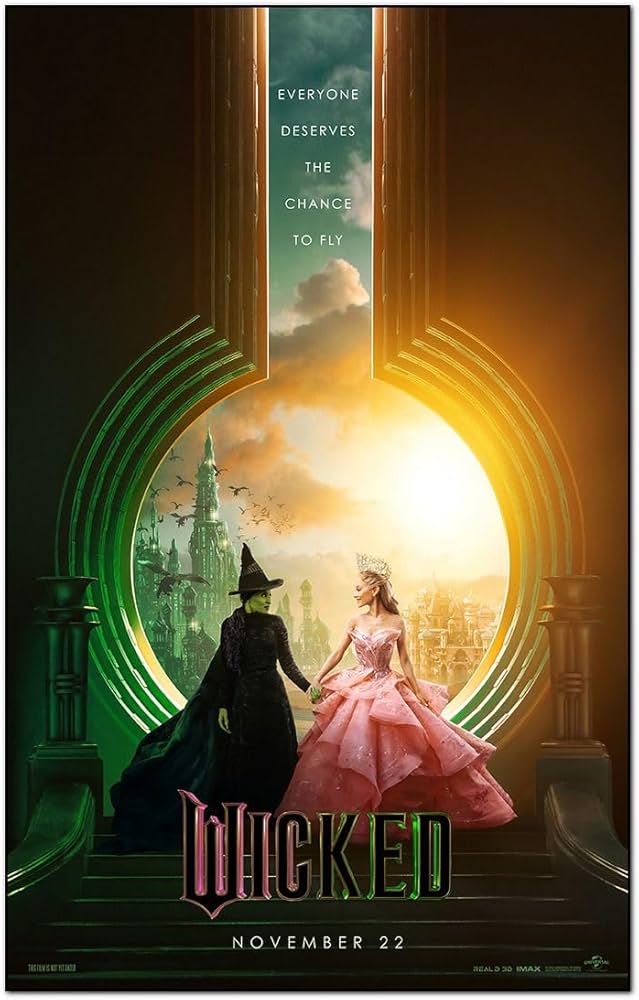EX MACHINA (2014)
8.20/10
LUKE HOBIKA, ‘20
Director: Alex Garland
Starring: Domhnall Gleeson, Alicia Vikander, Oscar Isaac
According to Amazon’s 2018 report, the company has passed the 100 million sales mark for their virtual assistant, Alexa. That means that the humble assistant is situated within tens of millions of distinctive households across the globe. By simply speaking “Alexa,” a user can follow their greeting with a request of any sorts for the automation to efficiently manage. Amazon claims that Alexa is only listening when its triggering phrase is voiced by a consumer. However, is that truly the case? Wouldn’t Alexa’s microphone have to be on at all times in order for the device to receive its commanding message? Is Amazon collecting every idea you speak? Even those not intended to be overheard by a human? All the more disturbing, this idea can be applied to other sorts of technology: phones, smart tablets, cars, computers. If you are reading this on an electronic device, you might as well wave hello to the camera.

Alex Garland’s directorial debut Ex Machina intensely provokes this plausible notion. Programmer Caleb Smith, portrayed by Domhnall Gleeson, works for the search engine company Blue Book which dominates approximately 93% of the world’s Internet trafficking. On a regular workday, Smith wins a lottery contest for a week-long trip to the seclusive home of the Blue Book CEO, Nathan Bateman. Bateman, played by Oscar Isaac, makes use of Smith by enrolling him as a judge in his confidential technological experimentation. Smith’s primary job is to test Bateman’s newly programmed artificial intelligence robot, Ava, through a series of dialogue-driven sessions. The Turing tests that Smith is responsible for primarily determines whether or not the AI can be distinguished as a human rather than a robot. As each session progresses, Smith does not only classify Ava as a human but develops feelings of affection towards her. Throughout the film, the advancement in the relationship between Smith and Ava exposes the truth of her creator. From the start, Bateman is seen as an isolated, egocentric alcoholic, but Ava further puts his personality at a disadvantage through her unscripted words of discontent. With the assistance of Ava and Bateman’s other AI models, Smith devises a plan to set his beloved android free from Bateman’s restrictive software. By the end, Ex Machina is more than just a 108-minute independent film with a skeletal, claustrophobic story. Ex Machina highlights the greeds of the developers of certain technology while simultaneously concentrating on the connection between man and artificial intelligence.
Garland superbly reaches his objective for the film through the inclusion of potent dialogue and naturalistic visuals. The contrast in moods between the conversations of Smith and Bateman (human and human) and those of Smith and Ava (human and AI) are astoundingly haunting. On one hand, the chemistry between Bateman and Smith is beyond awkward. Their discussions scenes all entail succinct, hesitant small-talk where the ideas of each man oppose the other. No matter the location of the talk, whether it be next to a rushing waterfall or within the confined basement, the friction between the two is undeniably present. It is ironic that the two living individuals are the ones to show conflict towards each other when their job in life is to resolve issues in the most efficient way possible. In contrast, the heart-to-heart chats between Smith and Ava are sincere and profound. While gazing in Ava’s glossy, enticing eyes, Smith frequently spills his emotions to the fabricated human. Only after his first session with Ava, Smith felt inclined enough to invest his trust into the stranger, revealing his most personal and sensitive stories. In the exact opposite, the dynamic of Smith and Bateman remained tense and wary even after spending a full week in each other’s presence. The interactions occur repeatedly throughout the film, building upon the notion of society’s growing reliance on artificial intelligence over human comprehension.
Mirroring contemporary society, Garland strikingly questions the deceptions that may accompany the world community’s swelling confidence towards automation while disregarding the human names behind the inventions. Not only must we challenge where the secrets we “disclose” to such machinery end up but the true intentions of the creators. Sure, an innovator could purely have innocent intentions for their designs, but another’s solitary and distorted life could detrimentally influence their creations, Bateman being a prime example. Furthermore, such effects could ultimately induce harm on the population as we know it, making our worst nightmare reality: The day artificial intelligence become superior and backstab the human race.









































